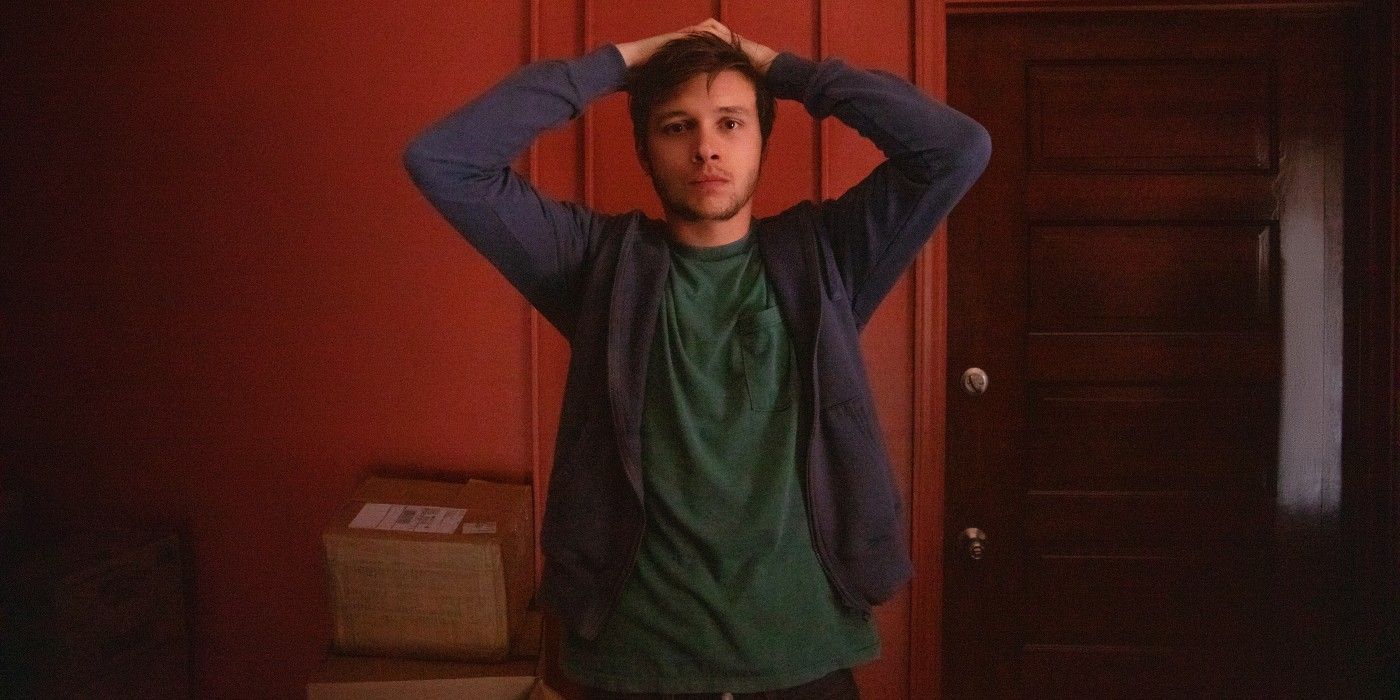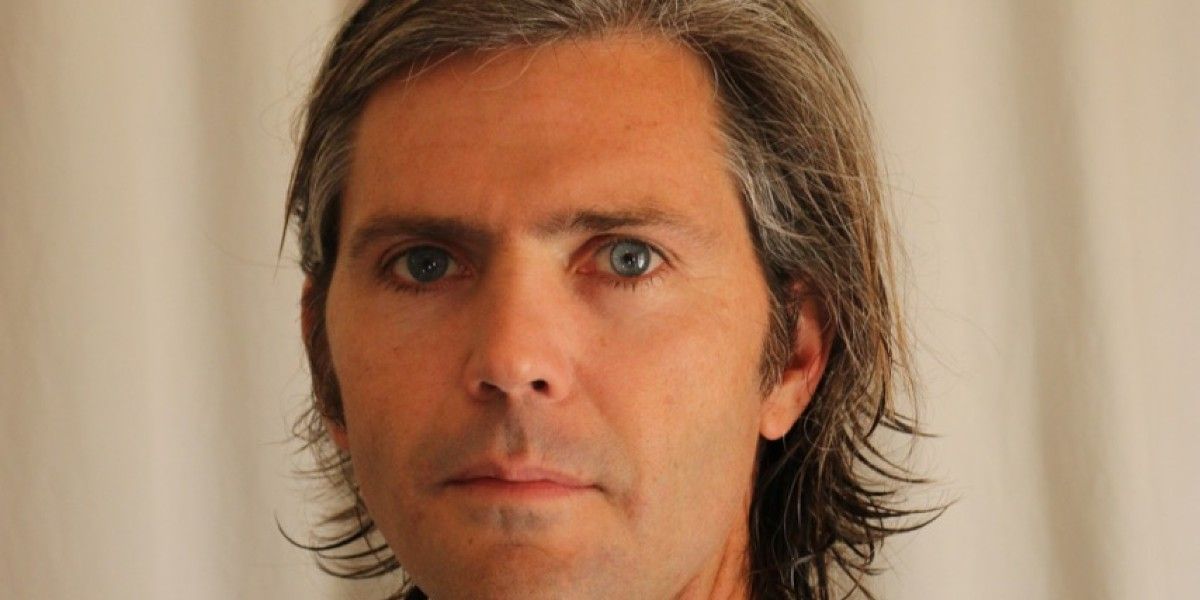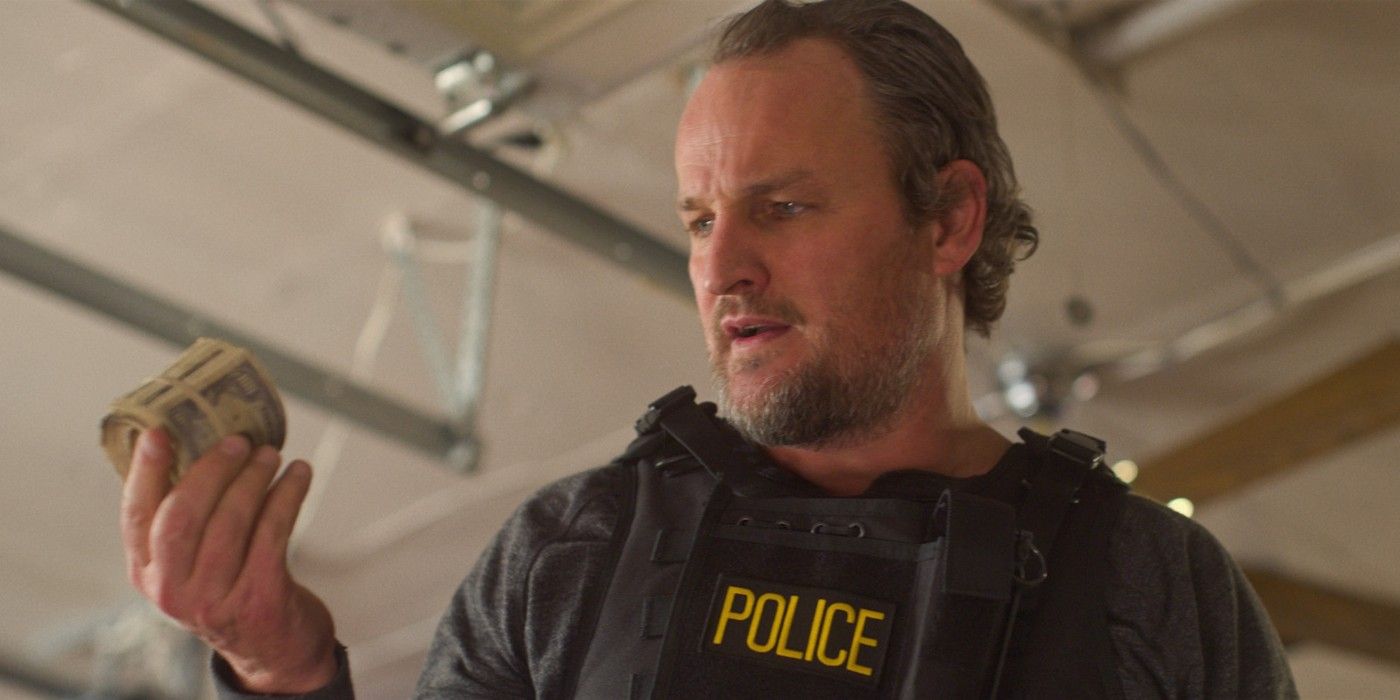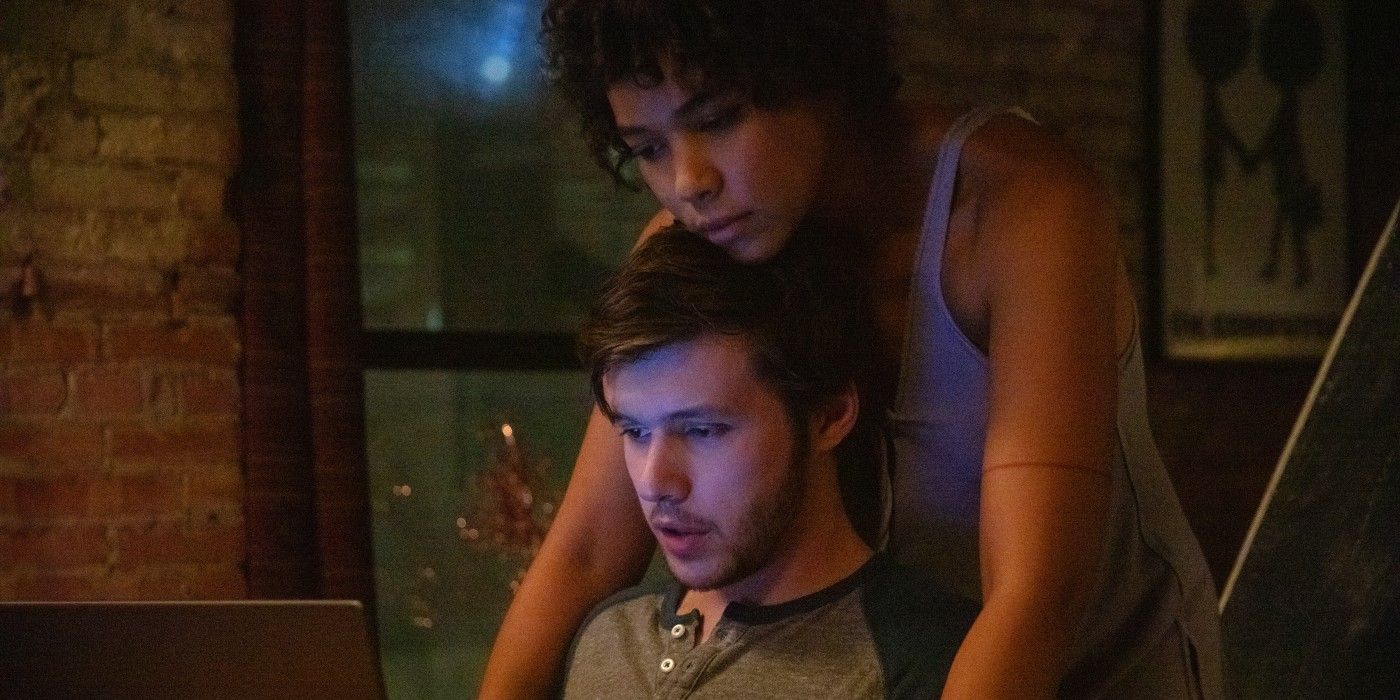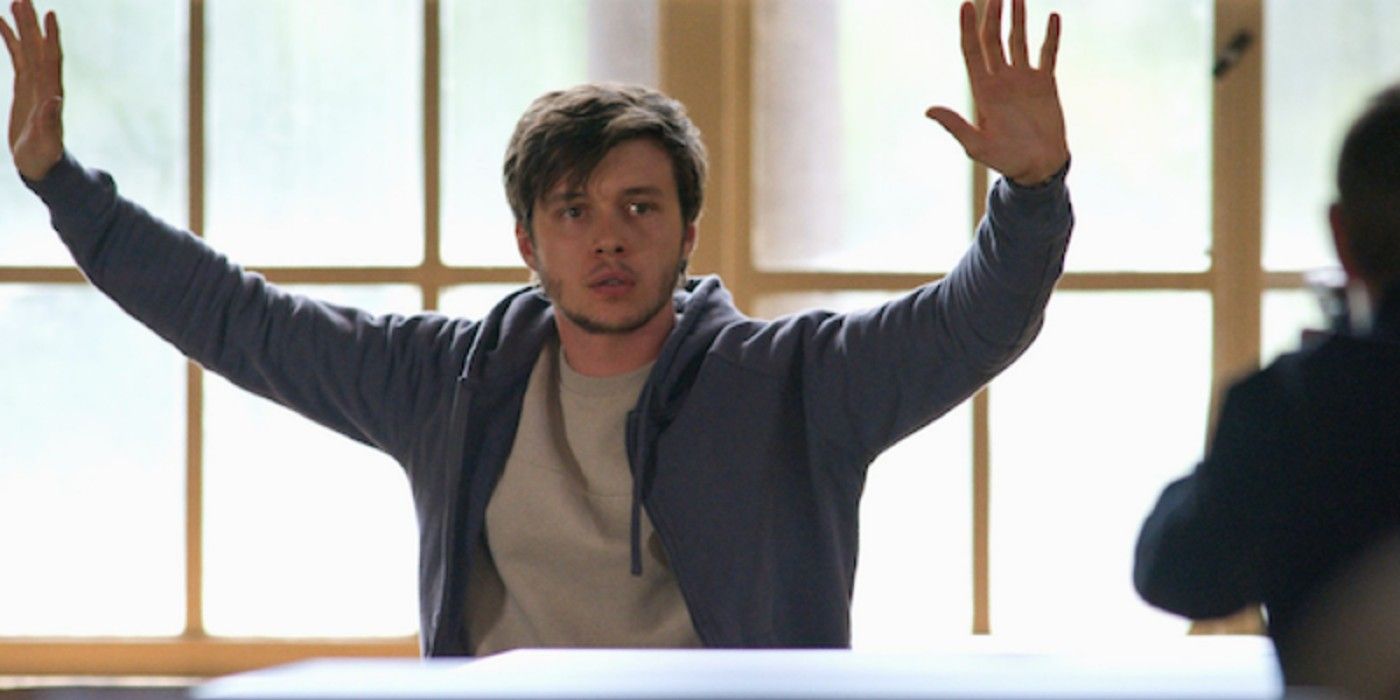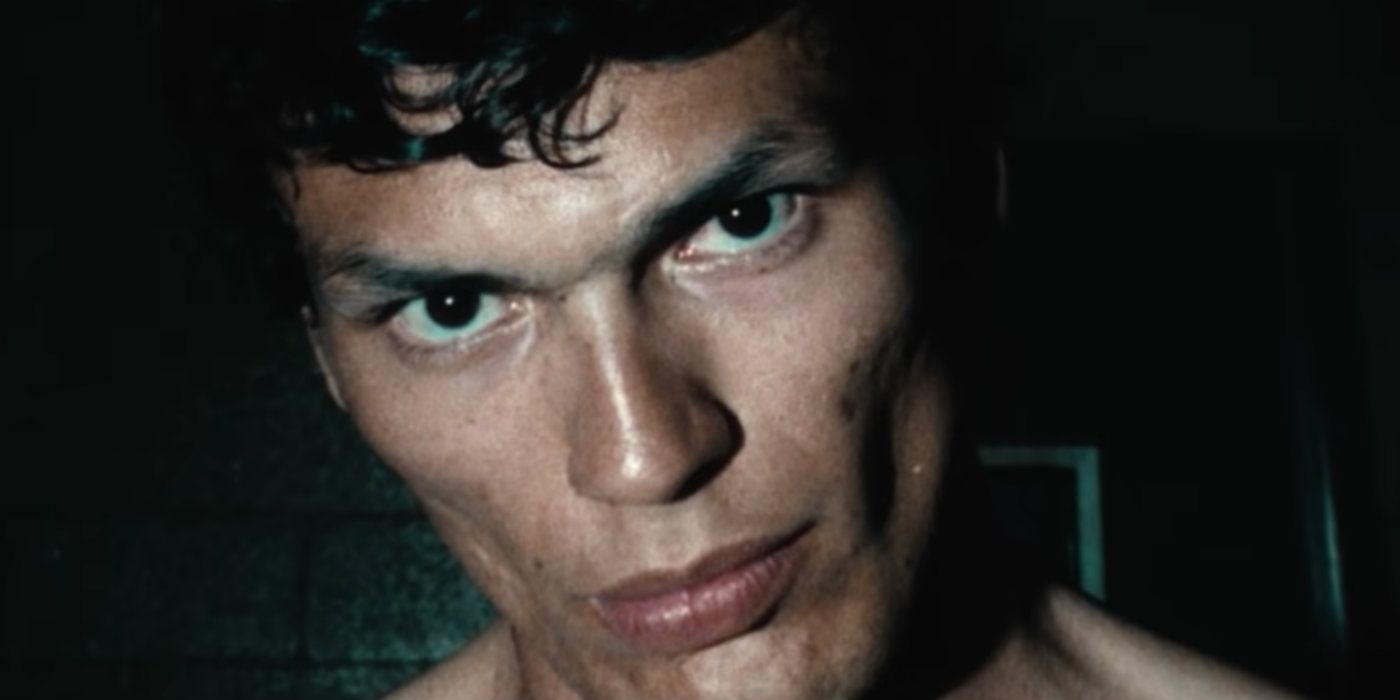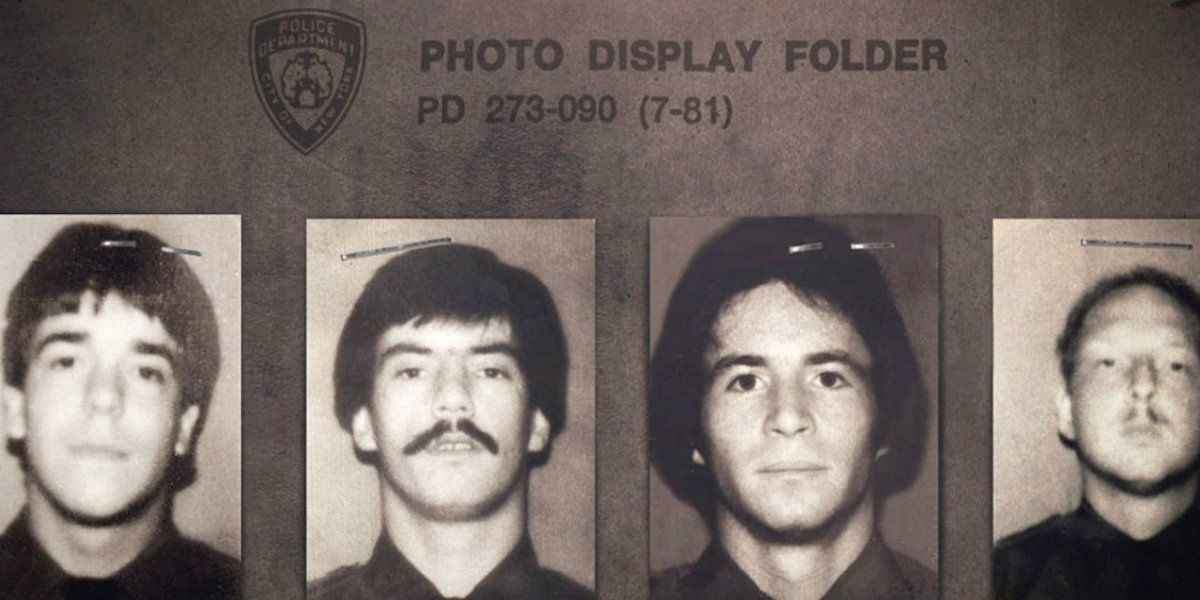After making a name for himself in the documentary space with The Seven Five, Operation Odessa, Amazon's The Last Narc and the recent Netflix docuseries Night Stalker, director Tiller Russell finally makes his narrative feature debut with the cybercrime thriller Silk Road.
The Silk Road, for those of you not familiar with it, was a website that billed itself as "the Amazon of drugs" where you could buy cocaine, ecstasy and any number of illegal narcotics, not to mention firearms and other weapons. It was the Wild Wild West by way of the World Wide Web, and as inevitable as its downfall was, so was the fact that Hollywood would make a movie about it one day.
That day has finally arrived, as Russell's latest project casts Nick Robinson as Silk Road founder Ross Ulbricht, who went by the nom de plume Dread Pirate Roberts. Ulbricht's rise and fall makes for a doozy of a story, but like all stories, this one has two sides, and the other one is represented by Rick Bowden, a federal agent who went undercover to make a bust and wound up getting seduced the criminal lifestyle and the riches it brings.
Jason Clarke co-stars as Bowden, aka Nob, and Russell gets a searing performance out of the veteran Australian actor. In fact, it was Russell's idea to make Silk Road a two-hander in the first place, as the director felt that giving equal screentime to Ross' adversary would provide the film a certain structure that allowed the director to examine the moral complexity of this story.
Russell started out as a newspaper crime reporter before being encouraged to pursue documentary filmmaking by none other than Errol Morris. He has long been drawn to the inherent risk in telling crime stories, and he seems to have a real knack for them, though Silk Road is a different beast entirely. It's certainly a fascinating story, so be sure to check out the Lionsgate movie, and I hope you enjoy my latest interview with Russell, who also talks about working on another project about Night Stalker subject Richard Ramirez.
How did you first become involved with this project, and how much did you already know about the Silk Road going into it?
How this particular story ended up on my radar was, I was off shooting a crime doc, and I remember reading in the paper the day after Ross was arrested about him being hunted down and arrested in the sci-fi section of the Glen Park Library in San Francisco. And literally, just from those weird little details, I instantaneously felt like, 'OK, there is a story there. There is a movie there. Maybe a doc, maybe a feature, I don't know what.' But I just had a kind of strong and visceral instinct that there was something super compelling there, so I kind of continued to follow [it] in dribs and drabs as things hit the public, and then eventually David Kushner wrote what I think was a really brilliant Rolling Stone article. It was like a humanist portrait, almost, of Ross, about his childhood, his family, his girlfriend -- this kind of intimate snapshot of who he was, and that ended up becoming the launching pad for the movie.
And then the interesting thing from there was, at the time, the other half of the story hadn't broken yet. The fact that there were corrupt DEA agents that were both hunting Ross as well as trying to fleece him, none of that had sort of come out yet. But I knew people at the DEA and the U.S. Attorney's office who kind of tipped me to, 'hey, there's a whole amazing other side of the story,' and it wasn't until that piece kind of locked in, that it's two characters on these opposing journeys, that the structure for the film snapped into place for me.
Last year, you told me that there were 10 different versions of this film that could've been made over the years, so how did all the chips fall into place on this version?
Well, it was really interesting. I probably sat down with almost every awesome, young, up-and-coming leading man in Hollywood. It was a part that, as the script began to circulate early, people were interested in. So I sat down with countless folks, amazing folks. But I knew that, because you're taking the audience on this dark voyage, that it had to be somebody who you could connect with, hopefully emotionally, from the get-go, to be able to take them to a dark place. And when I sat down with Nick Robinson, I instantaneously fell in love with the guy, because he was so sweet and vulnerable and winning, that I just felt myself rooting for him at the table, and I thought, 'that's my guy.' And because I feel this way about him, hopefully that will translate to audiences feeling the same way, so that as he goes from being kind of a dreamer at the beginning of the movie to a gangster-legend by the end of it, you're able to take them on that ride.
Why did you decide to make Jason Clarke's character the co-lead of this film, and do you think that by focusing on these two characters instead of just one of them, did it possibly shortchange them somehow?
What I wanted to do was show that they were, in some sense or another, different sides of the same coin. And so to me, making it a two-hander where your loyalties, hopefully, as a viewer, are sometimes conflicting, sometimes contrasting. 'Am I rooting for Ross? Am I rooting for Bowden?' The moral complexity of the story is what attracted me to begin with, and the sort of best way to explore that was in these opposing characters, and how they interacted with and affected [each other], and in spite of the fact that they're the last person on earth that each one should interact with, that's who they choose to have their loyalty to, in some way or another.
I know this movie is based on a Rolling Stone article, but I'm curious if you read Nick Bilton's American Kingpin or looked at any other source material before starting this movie?
I read everything that I could find. I approached it the same way I would have a doc, where it was exhaustive -- everything that was published about it, everything that was in the court filings, any particular people that I could get a hold of. Ross's ex-girlfriend, Julia Vee, who's played in the film by Alexandra Shipp, was actually a consultant on the movie in the writing of the script, talking to actors, and fashioning him as a character. So I kind of consumed everything, but there are gaps and lacuna in the historical record, and into some of those places I poured myself and attempted to make it a personal film.
What was the scariest thing about the Silk Road?
Well, I think both the genius and the danger of it -- it's high-concept simplicity. Once Ross had the idea to use Tor to conceal identity and sort of give absolute anonymity, and then use Bitcoin as the currency, it became this almost instantaneous, very quick global metastasis of an idea, right? And so the notion that there's kind of no accountability, and all of this is just strangers interacting with strangers without any eye-to-eye contact, that's both the power and the danger of it to me.
What do you think is the ultimate legacy of the Silk Road? How do you think it will be remembered -- like the good old days, or good riddance?
Well, I think different people will draw different conclusions about it. What I would point out is, but for Silk Road, none of us would know Bitcoin. Like, that's what injected it into the zeitgeist, and in a fundamental way. So that's a strange piece of the legacy. And I also think in some fundamental way it was a bookend, or kind of a flashpoint, in the drug war. The drug game had always happened in a hand-to-hand, kind of old-school, analog way, and suddenly, when the postman can inadvertently be your dope dealer, it changed everything, categorically and irrevocably, I think.
What was the toughest challenge or limitation you faced in making this film?
Well, I think you always want more time and more money, the same challenge of, really, any project, I suppose. Left to my own devices, I'd work on them forever and never turn them in, so that's an element to it. Another is that I don't like making simple moral judgments for people. I'm a big believer in 'present the characters, present the story, and let you draw your own conclusions.' So being very restrained about that, about not placing any judgment, is always a challenge.
Tell me about staging the big bust scene in the library. Was that exciting to be able to stage a big action scene with a SWAT team and cops?
Yeah, it was, and I'll tell you an interesting tidbit. I walked into the actual Glen Park Branch Library in San Francisco, as early on, I did the same things I would've done for a doc, which is be in the places and kind of marinate in the locations where these things had happened to kind of draw some material and authenticity from. And when I walked into the Glen Park Library, it was this tiny, unremarkable, low-ceilinged, totally un-cinematic place, and I thought, 'no way, it couldn't possibly have happened here.'
But as the movie acknowledges at the top in the text, "this story is true except for the things we made up or changed," I wanted to play that very cards-up, so that by the time we end up constructing the version of it in the movie, it's with these cathedral-like ceilings, and this big sort of beautiful, vast space. And to me, there's a weird visual poetry to the way tactical teams move in this kind of almost insect-like fashion, so staging that was such a joy, but also such a departure, I think, from the kind of quotidian, mundane nature of the actual location where it took place.
Do you think you could've done better justice to this story if it had been a limited series rather than a two-hour feature? Was there anything that you had to cut for time?
I think that any story finds its own format and medium. Could there have been a limited series version of this that told a very different story? Sure, absolutely. That was not the version of the story that I chose to tell, and the version of it that I chose to tell was this compressed two-hander in two hours. So that was my judgment, right or wrong, but that seemed like the most compelling way to tell the story to me.
And since this is your first narrative feature film, what was it like making that leap from documentary filmmaking, and is this something you'd like to do more of, or do you prefer working in that documentary format?
I absolutely loved doing it and it was a joy to be able to collaborate with such amazing actors and a diverse, fascinating cast, and I would love to have the opportunity to make more movies in the future. At the same time, I will also always make documentaries. I love them both, and would love to toggle between the two.
Why do you think you're drawn to these kinds of crime stories that explore the darker impulses of humanity?
Part of it, I think, is a product of my childhood, having grown up around it. My dad was in the DA's office and depicted in Errol Morris' film The Thin Blue Line, so I grew up around cops and courts and precincts, and got a glimpse into the underworld, so I've always been magnetized to those kinds of stories. And I think also, in a fundamental way, there's great dramatic intensity to that universe, where whether you're a cop or whether you're a gangster, every time you step out the door with a gun on your side, it is life-and-death stakes. Some dramatic things happen in that world, and it's a place where there's a lot of grey, there's a lot of moral complexity, and that's something that I'm fascinated to mine further.
When I turned in my review for Night Stalker, my editors questioned my suggested headline, which was very pro-police, given the events of that series. Now, I understand where they were coming from, but I'm curious if that angle was ever a concern of yours in making the series, given how it was released at a time of such anti-police sentiment?
Well, I think there's two things. One is that we are at a time when the crisis in policing has become... it's not just a crisis, it's like, things must change categorically and for good and right now, and I think the world recognizes that, and so we are at a massive cultural reckoning. Yet at the same time, the Night Stalker story is set in 1985, and I think it's really important not to confuse the cultural lens with which we're viewing things today with a story that's taking place in a completely different cultural context, and to judge it on its own, which is to say, not through that prism.
As to why I chose not to focus on the psychology of Ramirez, or Ramirez as a central character, it was a deliberate decision in the sense that his story has had this weird, surreal afterlife, where he was almost treated like a rock star. So [given] the celebritization of him, where he had fans and groupies and this kind of iconography, it was incredibly important to me not to fall prey to that phony myth, and that's why I chose to tell the story about the child abductions and molestations, and that aspect of the story, which I think the public doesn't know, because it's impossible to lionize somebody who's doing something like that. So it was a deliberate choice to tell it that way, that was my instinct. It was the best way to tell the story, and at a certain point, that's kind of all you have as a storyteller, is your instincts. You're free to judge it however you want, but at the end of the day, that felt like the right way to do it to me.
I was just surprised when my editors questioned the headline of the review, because to me, yeah, the cops who helped get Richard Ramirez off the streets were good cops.
It's a weird thing. What has happened to us today, it has so shaken how anybody looks at policing, and we're at a crazy time, man. We're at a crazy time, and it's gotta change.
Speaking of dirty cops, what do you make of the prospect of Ben Stiller making a feature version of The Seven Five down the line?
Escape at Dannemora was stone brilliant, I thought it was absolutely amazing, and frankly, I'm a lifelong fan of him, so I think he'll do a really interesting version of it when he gets the chance to do so. I also know, as you just pointed out vis-à-vis Night Stalker, it's a weird time to be telling a story about cops and police corruption. Is now the time for it? I don't know, we'll have to see what the world decides.
Has he reached out to you to talk about it at all?
Early on he did, but I have not connected with him. We'll see, as it gets closer, how it shakes out.
I know you're coming off a super busy period, but is there anything you've already started working on next?
I've written the adaptation of Operation Odessa, which is my next movie, so that's next up in the feature queue, and then there's a handful of cool crime docs and a couple of interesting non-fiction things as well. And we're also working on adapting Night Stalker as a narrative series.
Silk Road is now available in select theaters and on VOD/digital platforms. Click here to watch the trailer.

